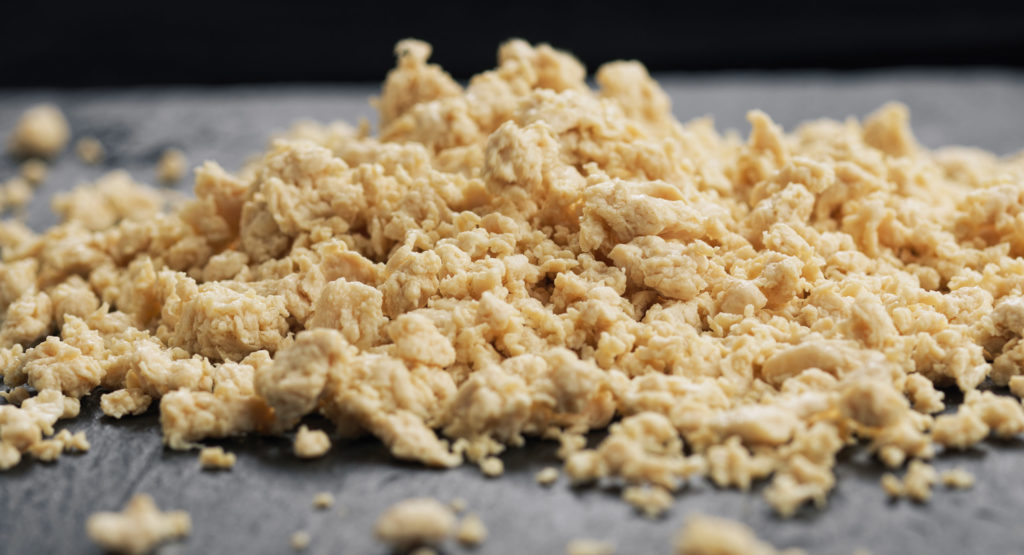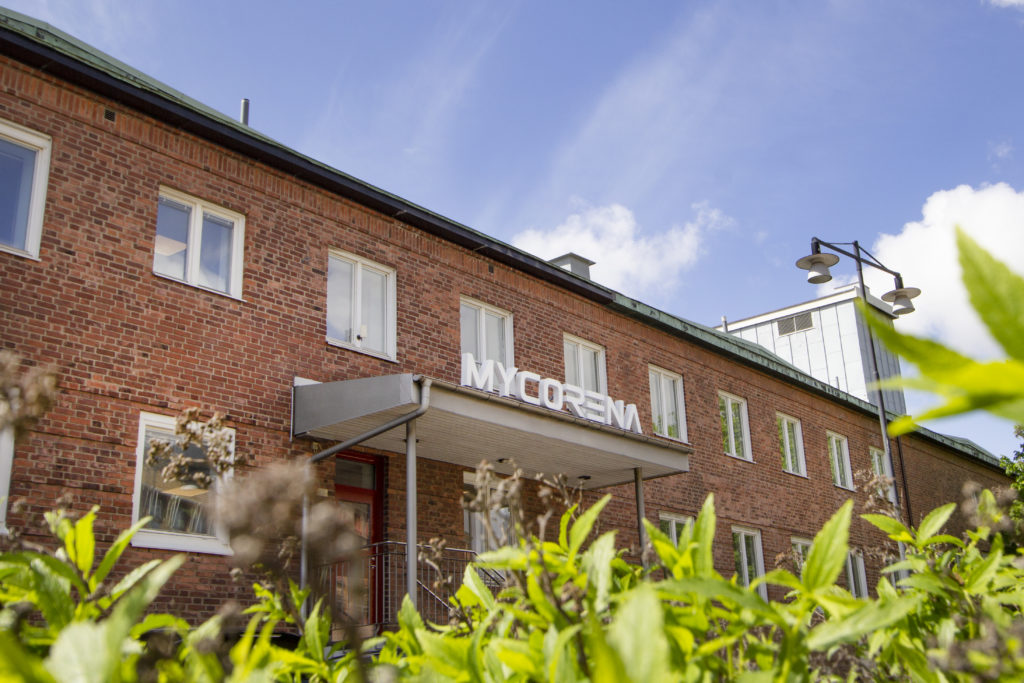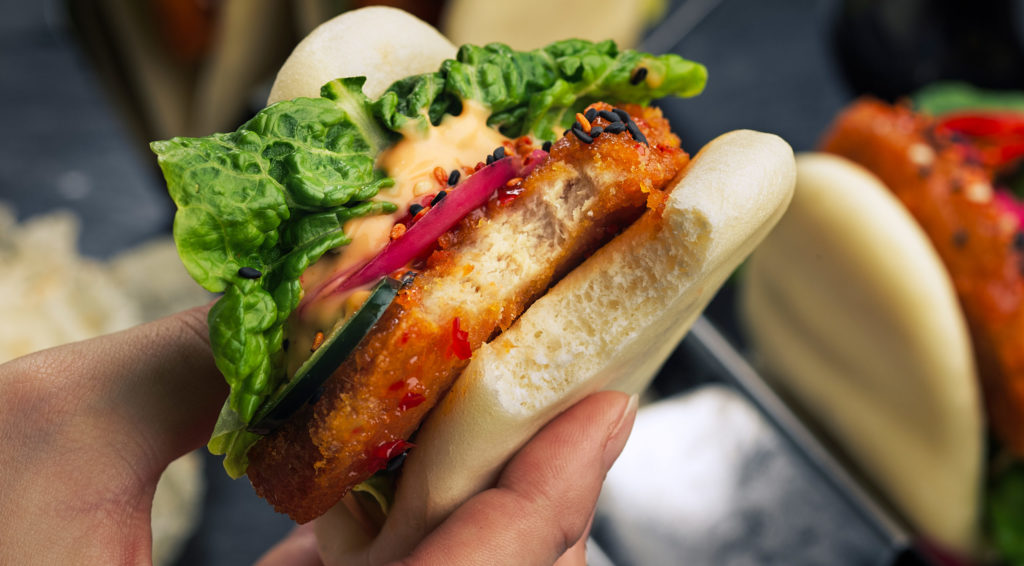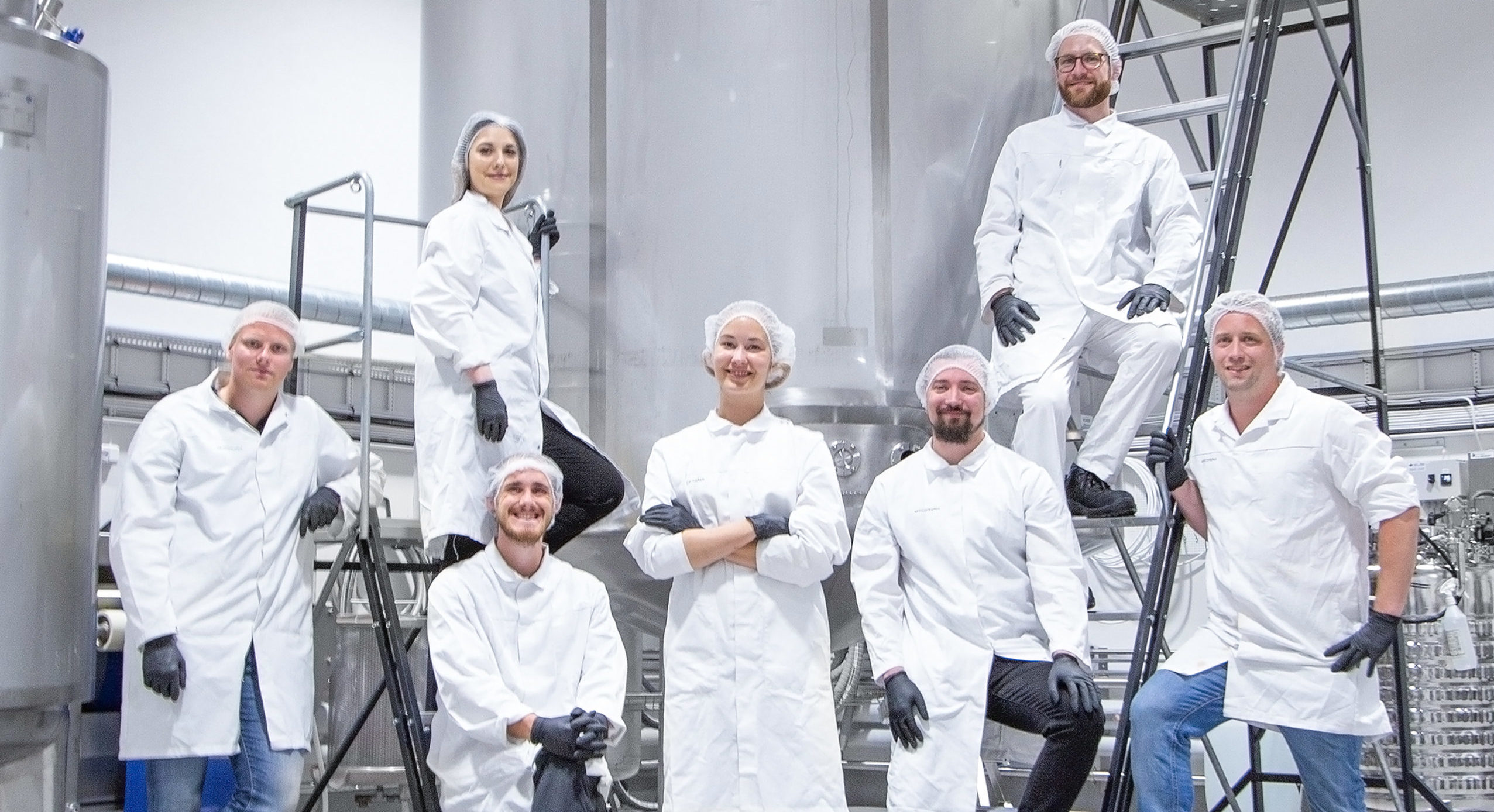3 Mins Read
The Mycorena Innovation and Development centre has recently undergone an expansion. The enlarged facility, located in Gothenburg, now takes the title of Europe’s largest operational mycoprotein production factory. Recent construction saw Mycorena’s office headquarters, fermentation facilities, development kitchen and pilot production line all brought together under one roof.
Not just the largest, MIND is considered one of the most diverse fermentation locations in Europe. The startup is equipped with multiple custom-designed pieces of equipment spanning desktop to demonstration scale and all capable of manufacturing food-grade mycoprotein. Automation systems have contributed to the facility being regarded as unique within its sector.

Funding Mycorena’s manufacturing scale-up
In March, Swedish startup Mycorena closed a €24 million Series A funding round. It represented the largest investment into the Nordic alternative protein sector and allowed the startup to fulfil its expansion plans. In addition to increasing the footprint of its existing location, Mycorena revealed that it hopes to build an entirely unique production plant, focussed entirely on its proprietary Promyc protein. MIND has fulfilled its purpose of proving the commercial viability of Promyc, manufacturing suitable demo amounts. Now, full scale-up is needed, with a production plant slated for construction less than one hour away from MIND.
Current production facilities, housed within MIND, include newly enlarged fermentation capacity and custom downstream processes. Manufacturing activities have been analysed and deemed suitable for food-grade production, with the resulting ingredients all vegan, allergen-free and kosher certified.

The future of animal-free protein
MIND has been designed to facilitate the development of future-friendly vegan protein, using fungi as the base. Within the plant, four labs have been created to focus on specific parts of the fermentation process. The more unique element, however, is the inclusion of a pilot production line capable of making finished mycoprotein products suitable for consumers. This has been dubbed Mycorena’s “fermenter to fork” approach, highlighting the comparison to ‘farm to fork’ meat production. The pilot line is slated to have an annual capacity of thousands of tonnes of minced food items.
Sustainability and accessibility have remained driving motivation since the startup’s inception. As a result, it has developed its signature Promyc to be grown using food industry byproducts. When the new plant is built and operational, there will be scope to divert vast amounts of industrial food waste away from conventional garbage.

Mycelium for a more sustainable food system
Mycorena is one of the numerous startups looking to leverage the potential and regenerative nature of mycelium, for new food sources. Most recently, Hyfé Foods, a startup from Chicago, bagged $2 million in pre-seed funding to continue its work into mycelium flour. The female-founded and led company was simultaneously awarded a Department of Energy grant.
Like Mycorena, Hyfé utilises a waste product as its chief feedstock, in this case, waste sugar water. It supports mycelium fermentation, which is processed into a protein-rich flour that can be added to a variety of foods. It is cited as tasting and functioning just like wheat flour but with no allergen risk and improved nutrition. It is a certified carbon neutral product, which can be developed anywhere in the world, with access to Hyfé’s technology.
In May, Berlin-based Bosque Foods confirmed it has raised $3 million to transform mycelium into meaty whole cuts. First on its list are chicken and pork fillets that will replicate the taste, texture and nutrition of conventional meat products. Discussing the raise, Bosque’s lead investor, FoodLabs, stated that investors are looking at the fermentation arm of alternative protein as having the potential to replace standard plant-based meat.
All photos by Mycorena.




